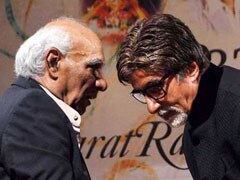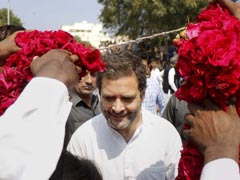New Delhi: The financial dealings of Jay Shah, son of BJP President Amit Shah as reported in The Wire centred around a potent headline: that Jay Shah's fortunes rose 16,000 times after the BJP came to power - from Rs 50,000 to Rs 80 crore.
The BJP responded saying that the story omitted to mention that the Jay Shah company, which dealt in commodities, may have made Rs 80 crore revenue, but had expenses of over Rs 80 crore, hence posting a loss, leading to a decision to close it down. This, they said, rebuts the Congress charge of cronyism benefiting Mr Shah.
An examination by NDTV of Mr Shah's filings before the government - the documents around which The Wire story is based - throws up a more complex picture.
The records do suggest that the expenses of Mr Shah's commodity trading company overshot his revenues. In fact, a substantial part of those expenses - close to Rs 10 crore - pertain to the logistics and regulatory costs of exporting commodities.
But the bigger question, not adequately answered by the BJP's defence, centres around the dramatic spike in loans received by Mr Shah's companies after the BJP comes to power.
By 2013-14, two of Mr Shah's companies that are at the heart of The Wire report showed loans of Rs 1.3 crore. By the next year, that figure rose to Rs 53.4 crore, a jump of 4,000%.
Neither of the companies are newbies.
One of them, Temple Enterprises, despite being incorporated in 2004, had an unimpressive track record, showing an accumulated surplus of Rs 18.8 lakh in 2014 after 10 years of operation.
In 2015, however it shows as having received Rs 15.76 crore as an unsecured loan from KIFS Financial Services, a non-banking finance company (NBFC).
However, KIFS' papers show only Rs 1.16 lakh as unsecured loans advanced that year, as rent deposit.
When contacted by NDTV, KIFS claimed that the loan to Mr Shah was a secured loan, part of the Rs 88 crore of secured lending by KIFS that same year (2015-16).
If that is the case, KIFS would have lent a significant amount - 17 % of their order book - to a single company, not one with the soundest financial record.
This quite apart from the unanswered discrepancy of the nature of the loan, with Temple describing it as unsecured, and KIFS as secured.
The same questions surround bank credit to Kusum Finserve, incorporated by Mr Shah and his partners in 2012.
In its first year it posted a loss of Rs 36,500, showing a modest profit of Rs 1.73 crore in the year 2014.
And yet in 2015, it received a line of credit of Rs 25 crore from Kalupur Commercial Cooperative Bank, headquartered in Ahmedabad. Lending from KIFS Financials also increased that year, coming to a total of Rs 2.68 crore.
Officials at Kalupur Bank told NDTV that the line of credit was secured against the commodities that the company traded in, and so the Rs 25 crore amount was justified.
Another question, though, surrounds this loan. According to the RBI guidelines, urban cooperative banks cannot lend to stockbroking firms, or commodity brokers, against pledging of shares and other financial instruments.
The bank, however, said Kusum Finserve is a firm trading in commodities, not brokering in them, and hence is exempt from those restrictions.
But Kusum Finserve, in its filings, shows a bulk of its profits - 60% - as having come from "Consultancy", and the balance from commodity trading.
It is unclear what sort of consultancy a commodity trading company be engaged in. Could "consultancy" be used to describe revenues from brokering?
When we called Kusum Finserve's Ahmedabad office, the person who answered the phone appeared nonplussed. He said he does not know what the company does. When pressed, he says it "does business."
The Wire report points out that Kusum Finserve received another Rs 10 crore loan by expanding (or morphing) into the renewable energy business. This time the lender was IREDA, the power ministry's lending agency for renewable energy projects.
The government pointed out that IREDA's lending policies are fairly relaxed, and that there is no cronyism involved.
"I believe they (IREDA) have already given more than 2,000 sanctions on loans so far. And probably sanctioned over Rs 50,000 crores to different customers all over the country to promote renewable energy," said Piyush Goyal, Union Railways Minister.
This is borne out by IREDA's website, which leaves it open to private companies to apply for a loan, as long as they are not loss-making or loan defaulters.
Whether that includes firms from sharply divergent backgrounds, like commodity trading, remains unclear, as do the terms under which IREDA approved Mr Shah's project.
Regardless, the IREDA loan only added to Mr Shah's kitty, which expanded at a rapid, 4000% pace after the change of guard in Delhi.
Whether he was deserving, or benefited from a famous surname, can only be established by an enquiry.














